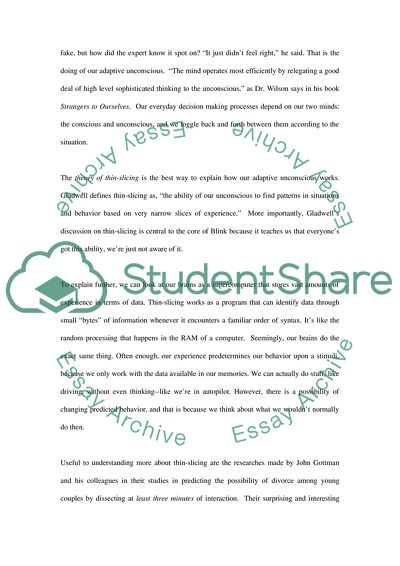Cite this document
(Blink by M.Gladwell Analysis Book Report/Review Example | Topics and Well Written Essays - 1750 words, n.d.)
Blink by M.Gladwell Analysis Book Report/Review Example | Topics and Well Written Essays - 1750 words. https://studentshare.org/psychology/1724120-blink-by-malcom-gladwell
Blink by M.Gladwell Analysis Book Report/Review Example | Topics and Well Written Essays - 1750 words. https://studentshare.org/psychology/1724120-blink-by-malcom-gladwell
(Blink by M.Gladwell Analysis Book Report/Review Example | Topics and Well Written Essays - 1750 Words)
Blink by M.Gladwell Analysis Book Report/Review Example | Topics and Well Written Essays - 1750 Words. https://studentshare.org/psychology/1724120-blink-by-malcom-gladwell.
Blink by M.Gladwell Analysis Book Report/Review Example | Topics and Well Written Essays - 1750 Words. https://studentshare.org/psychology/1724120-blink-by-malcom-gladwell.
“Blink by M.Gladwell Analysis Book Report/Review Example | Topics and Well Written Essays - 1750 Words”. https://studentshare.org/psychology/1724120-blink-by-malcom-gladwell.


